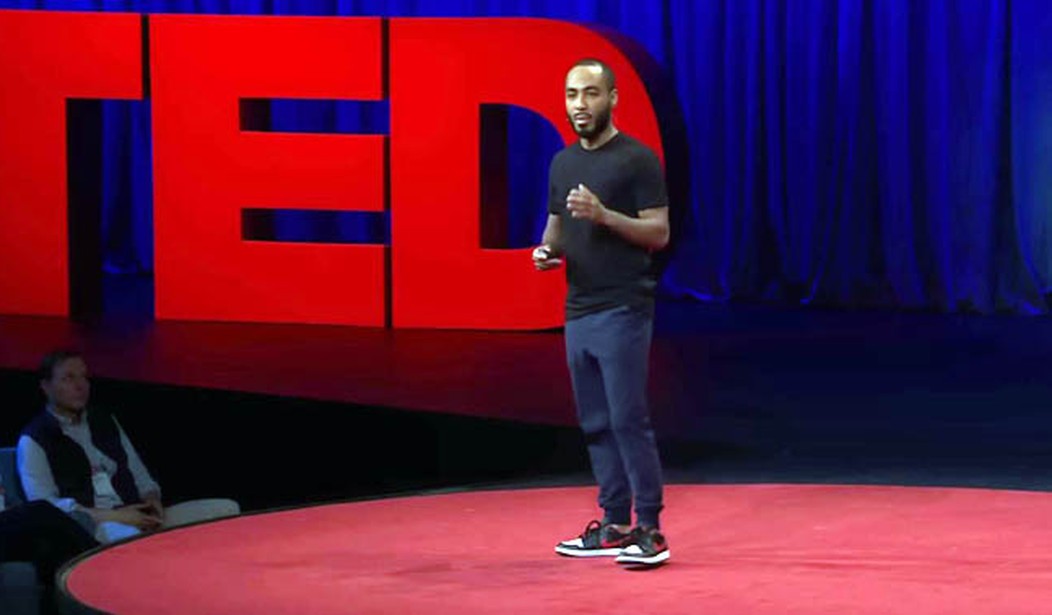TED talks are supposed to be all about making “ideas worth spreading” available for free. Earlier this year, the group invited Coleman Hughes to give a talk on colorblindness, which is also the subject of a forthcoming book he is working on. He wrote and edited the talk in conjunction with the organization, including a pass by fact-checkers from TED. Then he delivered the 13-minute talk on stage in April. While he expected some pushback given his topic he was initially surprised by how positive it seemed. But by the next day, things had changed:
The day after my talk, I heard from Chris Anderson, the head of TED. He told me that a group called “Black@TED”—which TED’s website describes as an “Employee Resource Group that exists to provide a safe space for TED staff who identify as Black”—was “upset” by my talk…
On the final day of the conference, TED held its yearly “town hall”—at which the audience can give feedback on the conference. The event opened with two people denouncing my talk back-to-back. The first woman called my talk “racist” as well as “dangerous and irresponsible”—comments that were met with cheers from the crowd. The second commentator, Otho Kerr, a program director at the Federal Reserve Bank of New York, claimed that I was “willing to have us slide back into the days of separate but equal.”
In response to their comments, Anderson took the mic and thanked them for their remarks. He also reminded the audience that “TED can’t shy away from controversy on issues that matter so much”—a statement I very much agreed with and appreciated.
Hughes left the conference thinking that was the end of it. But it was really just the start. Two weeks later he got an email from Anderson, the group’s leader, saying he’d received some pushback from psychologist Adam Grant who stated that Coleman’s “case for color blindness is directly contradicted by an extensive body of rigorous research.” Grant cited a particular meta-analysis of studies to prove his point. But when Hughes read the meta-analysis he found it didn’t say anything like what Grant claimed it did:
I was shocked to find that the paper largely supported my talk. In the results section, the authors write that “colorblindness is negatively related to stereotyping” and “is also negatively related to prejudice.” They also found that “meritocracy is negatively related to discrimination.”
The only finding in the analysis which seemed at odds with Hughes’ talk was that supporters of colorblindness tend to oppose DEI policies. Since many DEI policies are opposed to colorblindness, this probably shouldn’t be a surprise. In any case, Hughes pointed out that the analysis provided by Grant didn’t show what he had claimed and once again that seemed to be the end of it. By this point you’ve probably guessed that it was not.
About a week later, I received an email from Whitney Pennington Rodgers, the current affairs curator at TED and the point person for the curation of my talk. Whitney said that in lieu of releasing my TED talk normally, TED was inviting me “to participate in a moderated conversation that we would publish as an extension of your talk.”
In short, they didn’t want to release Hughes’ talk unless he would agree to debate the points with someone who disagreed (That person turned out to be NY Times columnist Jamelle Bouie.) Then the two talks would be spliced together with the tacked on one hour and ten minute long debate being five times as long as the original 13 minute talk.
Hughes rejected this plan and in a subsequent call with Anderson, he says Anderson admitted the employees who were angry about Hughes’ talk were politically biased. Anderson finally agreed that the subsequent debate with Bouie would be released separately two weeks after the release of Hughes’ TED talk.
However, a few weeks after the talk was finally published, Hughes was alerted to the fact that his talk on a hot-button issue had some of the lowest views of any recent talk. It turns out TED hadn’t promoted it like the others. They also never put a copy on YouTube until Hughes asked them why it wasn’t there.
So it looks as if TED has become one more ideologically captured organization bowing to the demands of its own woke employees. In this case, they didn’t cancel Hughes talk outright but they did make him jump through extra hoops and then do little to promote his talk like all the others given around the same time. All of this is especially embarrassing if you watch the talk in question which is as far from being a rhetorical bomb-throwing exercise as you can imagine. Here’s the full talk which, again, is only on YouTube because Hughes asked why it wasn’t posted there.








Join the conversation as a VIP Member